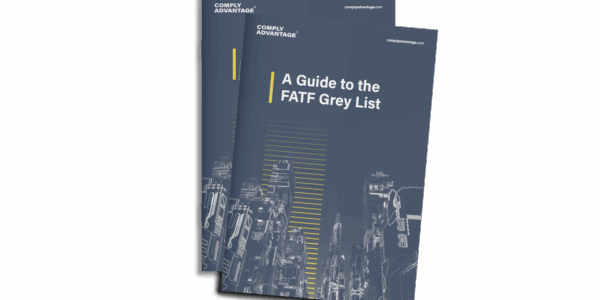

The fourth Financial Action Task Force (FATF) Plenary meeting under the Mexican Presidency of Elisa de Anda Madrazo took place in Paris from October 22–24, 2025. Highlights from the plenary include:
- Changes to the FATF grey list.
- Strategic initiatives on asset recovery and artificial intelligence (AI) in financial crime.
- The adoption of new mutual evaluations.
- The participation of new guest jurisdictions.
This article explains the key takeaways from the event, including what they mean for your business.
1. Removals from the grey list
The FATF’s list of jurisdictions under increased monitoring, or the ‘grey list’, is a key document for compliance professionals. In October 2025, there were no additions to the grey list in October 2025, but four countries were removed.
Burkina Faso
After a four-year spell on the grey list, Burkina Faso was removed at the plenary. Announcing the decision, the FATF praised the country’s progress with measures such as strengthening the risk-based supervision of financial institutions and DNFBPs, maintaining up-to-date beneficial ownership information, implementing targeted financial sanctions regimes, and improving the ability of law enforcement agencies to combat terrorist financing.
Mozambique
The FATF welcomed Mozambique’s progress in remedying the AML/CFT deficiencies that led to its grey listing in 2022. These included: ensuring co-operation among authorities in implementing AML/CFT strategies, training law enforcement agencies in gathering evidence and confiscating assets relating to financial crime, using financial intelligence to more effectively investigate cases, conducting a terrorist financing risk assessment and implementing an improved AML/CFT strategy, and providing greater resources to authorities to collect more accurate beneficial ownership information.
Nigeria
Nigeria also secured its removal, having spent over two years on the grey list. Among the steps it had taken were: completing a comprehensive money laundering and terrorist financing risk assessment and updating its national AML/CFT strategy, enhancing measures for high-risk business sectors, improving international co-operation on financial crime threats, carrying out more investigations and prosecutions of offenses, and strengthening its monitoring of non-profit organizations at risk of terrorist financing threats without disrupting legitimate activities.
South Africa
Added to the grey list in February 2023, South Africa was judged to have made enough progress to ensure its delisting. In its announcement, the FATF noted specific measures taken by the jurisdiction, such as improving the risk-based supervision of DNFBPs, ensuring authorities’ access to beneficial ownership information and punishing violations of beneficial ownership reporting obligations, updating its terrorist financing risk assessment, and demonstrating an increase in investigations into complex money laundering and terrorist financing cases in line with its risk profile.
There were no changes to the FATF’s list of jurisdictions subject to a call for action, or the ‘black list,’ which currently consists of the Democratic People’s Republic of Korea, Iran, and Myanmar.

A Guide to the FATF Grey List
The FATF grey list is among the best-known indices of higher-risk countries in the compliance industry. But how should firms respond to a grey listing in practice?
Download your copy2. Strategic initiatives
Asset recovery
The FATF has adopted new guidance to strengthen global asset recovery. Due to be published in November 2025, this guidance will help countries understand and implement the recently strengthened FATF Recommendations on asset recovery. According to the FATF, asset recovery levels are currently low across the world, a situation this guidance hopes to address by giving jurisdictions a stronger toolkit for confiscating criminal property.
AI and deepfakes
The FATF will also publish a ‘Horizon Scan’ on the use of AI technologies – including generative AI and agentic AI – in criminal activity. AI has been used to facilitate financial crime in a number of ways, with deepfake-enabled fraud one prominent example. The FATF’s Horizon Scan will enable both authorities and the private sector to strengthen their safeguards and use AI responsibly to protect the legitimate financial system, with a selection of case studies to be included.
3. Mutual evaluations
With the latest mutual evaluation reports (MERs) of Belgium and Malaysia having been completed, these were discussed and formally adopted at the plenary. These are due to be published in December 2025, after a quality and consistency review has taken place. As with all mutual evaluations, these will contain a list of Key Recommended Actions, which the jurisdictions in question are directed to implement within three years.
4. Strengthening the global network
The FATF’s Guest Initiative aims to broaden global participation in FATF meetings and increase the diversity of voices and perspectives at its events. Jamaica and Nigeria were the latest two countries to join the Plenary and Working Group meetings as guest jurisdictions, alongside Kenya, which also joined the last plenary in June.
On the subject of FATF membership and participation, the FATF’s suspension of Russia’s membership, which has been in place since February 2024, continues to stand.
Next steps
You and your team should familiarize yourselves with the outcomes of the October 2025 plenary, especially the changes to the grey list and updates related to FATF’s strategic initiatives. You may need to update the risk scores for relevant countries removed from the grey list and ensure that appropriate levels of due diligence are applied going forward. Our in-depth guide to the FATF grey list explains how countries’ status should be reflected in your compliance policies.
Firms should also look out for the FATF’s forthcoming Horizon Scan on AI in financial crime and be prepared to update their compliance processes to ensure they can mitigate emerging risks. Legacy compliance solutions are unlikely to give you both the security and efficiency you need; instead, you should evaluate AI-driven screening and monitoring tools that can detect complex risks while streamlining compliance workflows.
The next FATF plenary is due to take place in February 2026, in Mexico City.
The State of Financial Crime 2025
Uncover the compliance trends you need to know about in our report, based on a survey of 600 industry professionals and packed with expert analysis.
Read nowOriginally published 28 October 2025, updated 28 October 2025
Disclaimer: This is for general information only. The information presented does not constitute legal advice. ComplyAdvantage accepts no responsibility for any information contained herein and disclaims and excludes any liability in respect of the contents or for action taken based on this information.
Copyright © 2025 IVXS UK Limited (trading as ComplyAdvantage).
